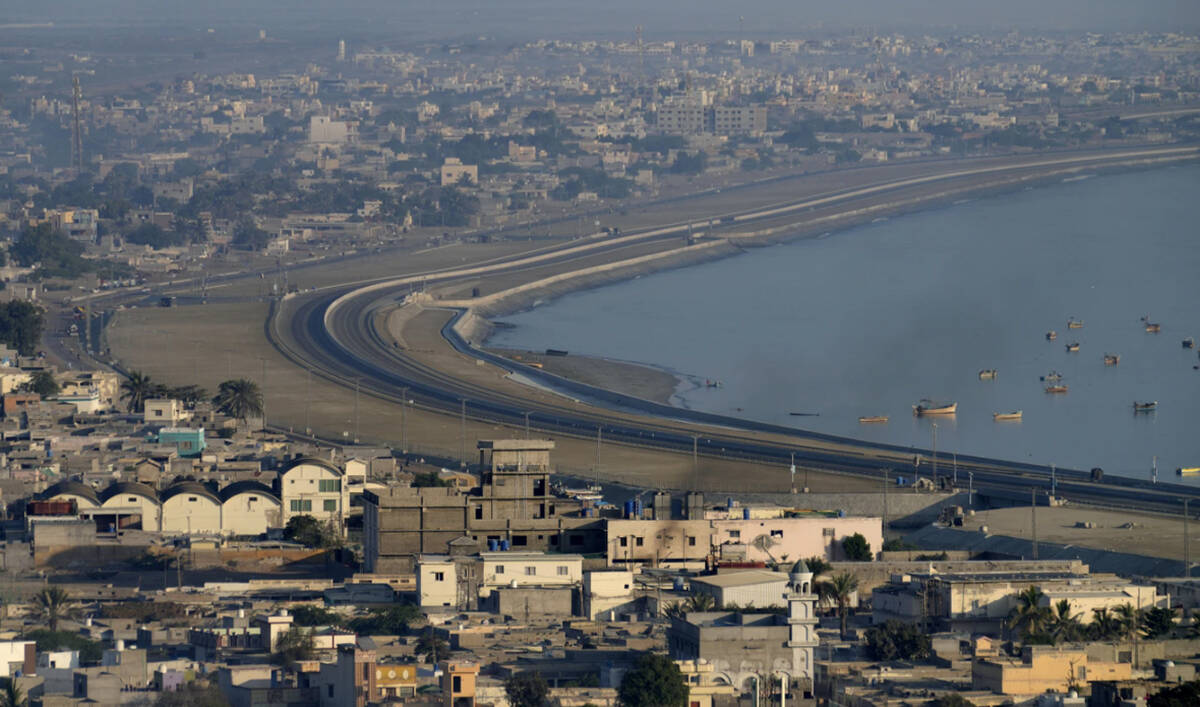ISLAMABAD: Pakistan’s Prime Minister Shehbaz Sharif vowed on Tuesday to bring to book rioters involved in violent protests that erupted after ex-premier Imran Khan’s arrest on May 9, likening the incidents to acts of “terrorism.”
Violent protests erupted across Pakistan last week after Rangers troops dragged Khan out of an Islamabad court and arrested him in a graft case, in a dramatic escalation of political tensions that led to attacks on military installations in the Punjab and Khyber Pakhtunkhwa provinces.
Khan’s party has denied the allegation that its workers were involved in ransacking and vandalizing government buildings and Lahore corps commander’s residence, known as Jinnah House.
Khan, who was ousted in a parliamentary no-trust vote last year, has since been agitating against the government and challenging the country’s powerful military, which has led to the arrest of several of his aides and party affiliates in different cases.
On Tuesday, PM Sharif presided over a meeting of the country’s National Security Committee, comprising top civilian and military officials mandated to oversee security matters, which promised a “zero-tolerance” policy against violence in the country.
“Those who planned, executed and abetted the vandalism on May 9 certainly committed an act of terrorism,” Sharif said in televised comments after the NSC meeting in Islamabad.
“They should be brought to justice at any cost, and even if the prime minister says to release someone, refuse to comply with the prime minister’s order.”
Recounting the violent attacks on military installations, Sharif said the rioters took to the army’s General Headquarters in Rawalpindi, an air force base in Mianwali, and the Inter-Services Intelligence (ISI) spy agency office in Faisalabad.
“Whatever happened on May 9 in this country, it will be remembered as the darkest chapter in this country’s history,” Sharif said, adding that Pakistan’s worst enemies could never do what these protesters did on May 9.
It was a public demand to punish all those involved in vandalism, he said.
“Law will take its course,” the prime minister said. “There is no question of any mistreatment to anybody, but if anybody has committed a crime, they won’t be spared.”
Arab News spoke to defense and political experts on the matter, who said authorities should arrest all those involved in vandalism, but provide them with all legal support to defend themselves in courts.
“The most important thing at the moment is to see if all those arrested on vandalism charges are provided with a fair trial and due process of law,” Zebunnisa Burki, a political analyst, told Arab News.
“Nobody can celebrate vandalism, but it is important that the authorities should apply civilian laws to try the accused in courts to keep the legal process fair and transparent.”
Lt General (retired) Ejaz Awan, a defense analyst, supported the government’s move to bring the May 9 rioters to justice, saying the “desecration” of military installations was a gruesome act.
“All those involved in the crime should be prosecuted as per the existing laws to ensure transparency of the process,” he told Arab News, adding the government had yet to share with the public as to when the trial of arrested accused would be initiated and under which laws.
On Monday, the army also said “perpetrators, spoilers and violators” involved in last week’s violence would be tried under relevant Pakistani laws, including the Pakistan Army Act and Official Secret Act. Both laws allow for the death sentence and life imprisonment, with trials held by secretive military courts.
In response, Khan’s party said on Tuesday there was no room in a democracy to combine the roles of “judge, jury and executioner” into one individual or institution.
Since his ouster, Khan has blamed the army and its then chief, General Qamar Javed Bajwa, of plotting with his political rivals, who now form the incumbent coalition government, to remove him. Khan came to power in a 2018 general election that is widely believed to have been rigged in his favor by the military — which both deny — but has since had a falling out with the army.
He has said in recent interviews that his party’s relations with the army had not improved under the new army chief, General Asim Munir.

















